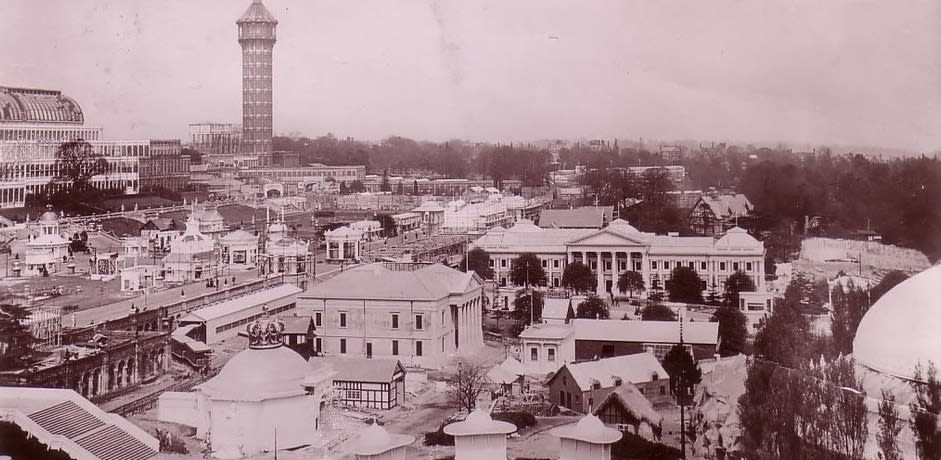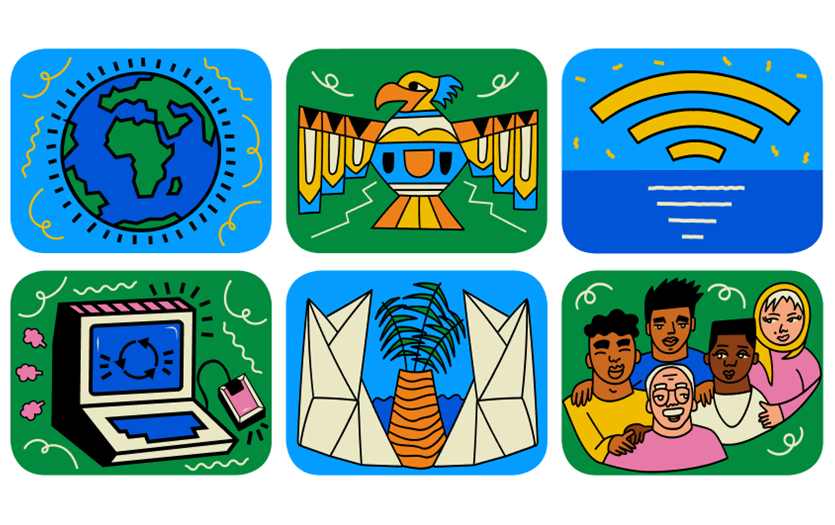
KE Voices: decolonising knowledge and the arts with Lucy Panesar

- Written byAnnika Loebig
- Published date 28 February 2022

Since joining UAL as Progression and Attainment Project Manager, Lucy Panesar has made tackling inequalities within higher education a key focus of her work. She’s the founder of the Decolonising Wikipedia Network, an initiative she’s now developing further thanks to her Knowledge Exchange secondment with Wikimedia UK, working as a Wikimedian in Residence to help expanding UAL’s arts decolonisation efforts. We spoke with her to find out how she's using her role to examine London’s colonial histories and legacies through an anti-racist and decolonial lens.
Hi Lucy! Knowledge Exchange (KE) is the term we use in Higher Education to describe how we collaborate with external partners. How would you explain what KE means in your own words?
I think about Knowledge Exchange in two ways. Firstly, in a literal way, it has to do with the exchange, movement, transfer and development of knowledge between people — something we all do as part of our lives.
From a higher education perspective, I see KE as the way in which universities open up their doors, sharing and facilitating the production of knowledge in a more publicly, accessible and beneficial way.
I am passionate about education and believe it is a human right, but I feel frustrated with how inaccessible education and knowledge can be for so many people, in particular those who are systematically excluded or marginalised in society. Universities make efforts to be more accessible but are still knowledge gatekeepers in many ways, and hold power when it comes to knowledge validation and dissemination. This is where KE plays such a key role.
I love the way you put this, and it reflects on the social justice element we see coming through most of our external collaborations. How did you first start getting involved in KE initiatives as part of your work at UAL?
I've been doing quite a lot of work on decolonising the curriculum at UAL, helping staff and students to share their perspectives through the Decolonising the Arts Curriculum zines. While this all seemed progressive, questions kept coming up about decolonisation itself, as a political and ideological movement, and about our colonial histories and the origins of the racial inequalities we experience today.
As a specialist arts and design university, I wasn’t finding answers to the broader decolonial and colonial questions from within my immediate professional surroundings, so I was attracted to KE as a way to move beyond this, to reach out across and beyond the university for answers.
At that time, I had developed an interest in the colonial history of the area I was living in, so I thought that would be a good place to start. I applied for the LCC KE Impact Fund in 2021 to start an investigation into the 1911 Festival of Empire that took place in Crystal Palace. This led me to working with a number of external organisations including the Crystal Palace Museum and the Radiate Festival for an online discussion. I also worked with LCC student Lydia Wilks on editing the Wikipedia page for the 1911 Festival.
This latter element connected up with the Decolonising Wikipedia work that I had established and started leading with LCC Student Changemakers, which received the Wikimedia Partnership of the Year Award in 2021.

That's amazing! It’s always great to see the value of KE projects being recognised. Was there anything you found particularly rewarding about the Decolonising Wikipedia and the Arts Curriculum projects?
I love having these discussions outside of the classroom, as it’s relevant not just as an academic exercise but something fundamental to our existence, our public and social lives as well as our academic interests.
It’s also really rewarding when I learn about people making their first Wikipedia edit as part of the project, and seeing what kinds of contributions they are making to public knowledge that way. That includes enabling more senior academics to share their specialist knowledge through Wikipedia editing, helping them to overcome technical barriers, or in some cases ideological barriers, as most academics like myself tend to be cautious about Wikipedia.
Also, seeing how the notion of Decolonising Wikipedia and London’s Colonial Histories relates to what students are studying in specific units. For example, students on the MSc Data Science and AI for the Creative Industries are looking at Wikipedia through their data science lenses, applying what they’re learning about biases in big data and machine learning. They are also exploring how other research databases can be better accessed to provide more information for editing Wikipedia in a way that supports decolonial aims, working in collaboration with UCL's Centre for the Study of the Legacies of British Slavery.
Decolonising Wikipedia x London's Colonial Her/Histories
For any potential partners reading this and thinking about working with you and your students, what type of projects are you keen to work on in the future?
This year is proving to be super busy with the KE work I had planned, with Wikimedia UK and the South London Gallery, and with so much interest from UAL courses for in-curricula sessions. There seems to be a real appetite across the board for this work, and there are some interesting seeds starting to be sewn for exciting future developments!
At the moment, I’m having discussions with the LCC International Development team about running a Decolonising Wikipedia project with some of our partner universities across the world. I’d also like to connect with institutions in India and East Africa as this relates to my own family heritage, and could build on some of the excellent work already happening between UAL and universities in India.
I’m also talking with colleagues in the Creative Computing Institute about the potential of taking some of the London colonial history research into virtual and augmented reality, building on existing expertise and interests that staff have there. The South London Gallery group are already starting to explore this in their work with Jazmin Morris, so the plan is to see how that goes and take it from there.
In the meantime, I’m keen to get feedback from staff, students and external audiences on the work I’m currently doing, including those who have or will be participating, and those who are observing.
Find out more about The Decolonising Wikipedia Network and Lucy Panesar’s work.
Explore other Knowledge Exchange initiatives happening at UAL
Let's collaborate! Get in touch with us: business@arts.ac.uk
KE Voices is a series of interviews where UAL academics talk about their involvement in Knowledge Exchange (KE) activities, reflecting on how creative thinking and practices can be applied to tackle real-world challenges in collaboration with businesses, charities, local communities and other education institutions.